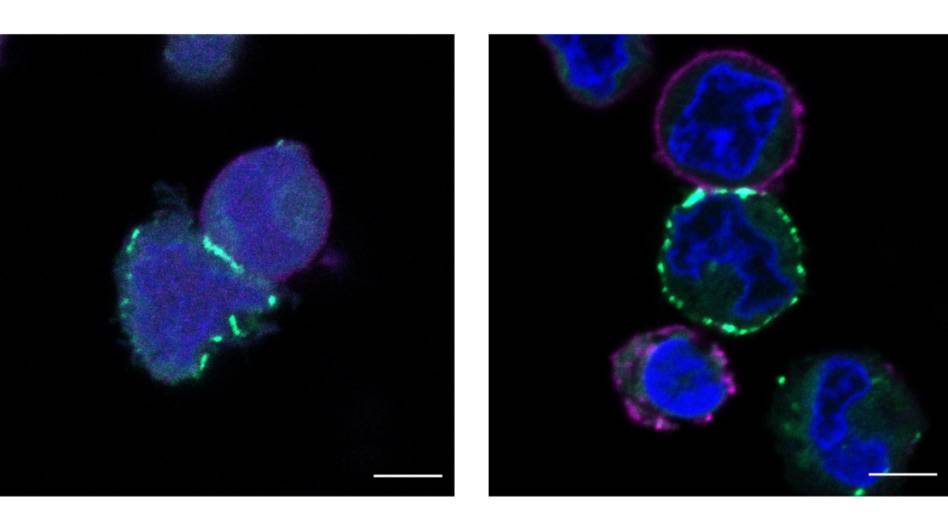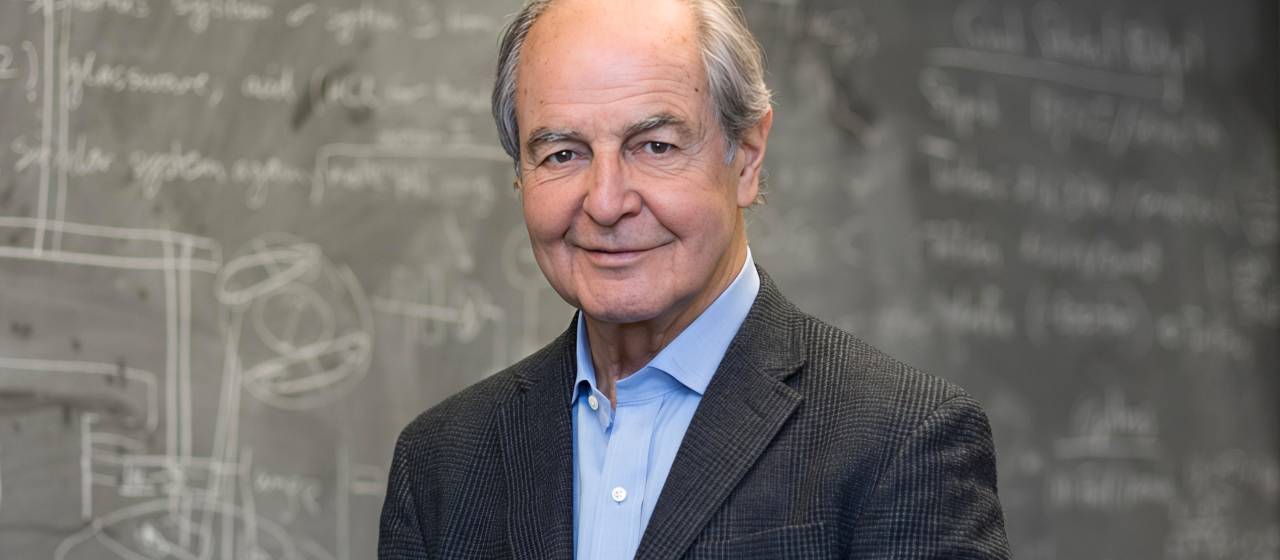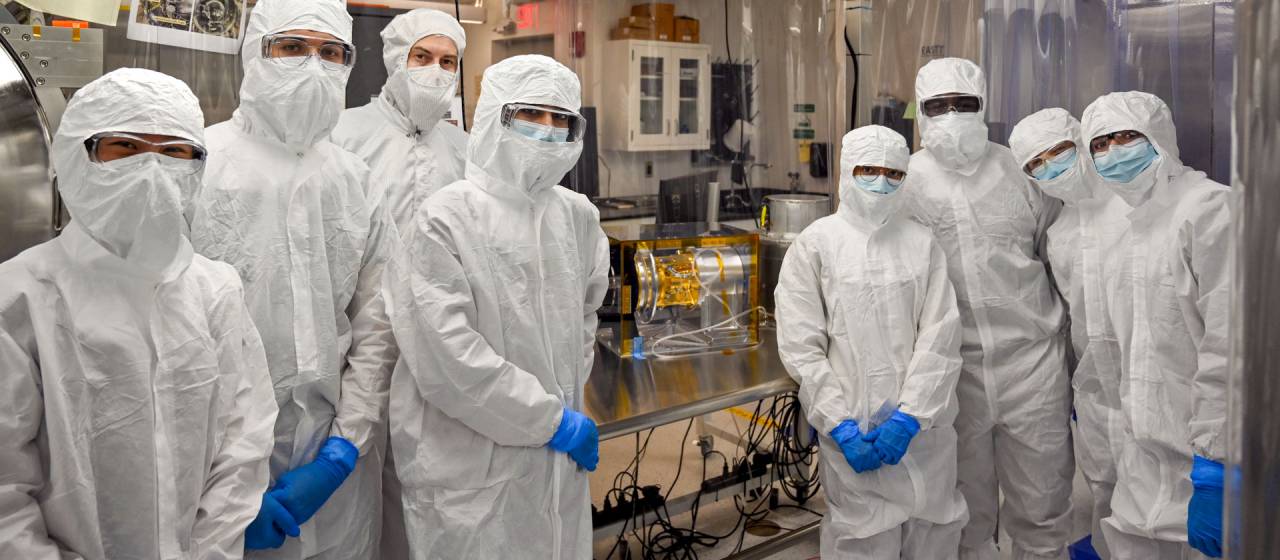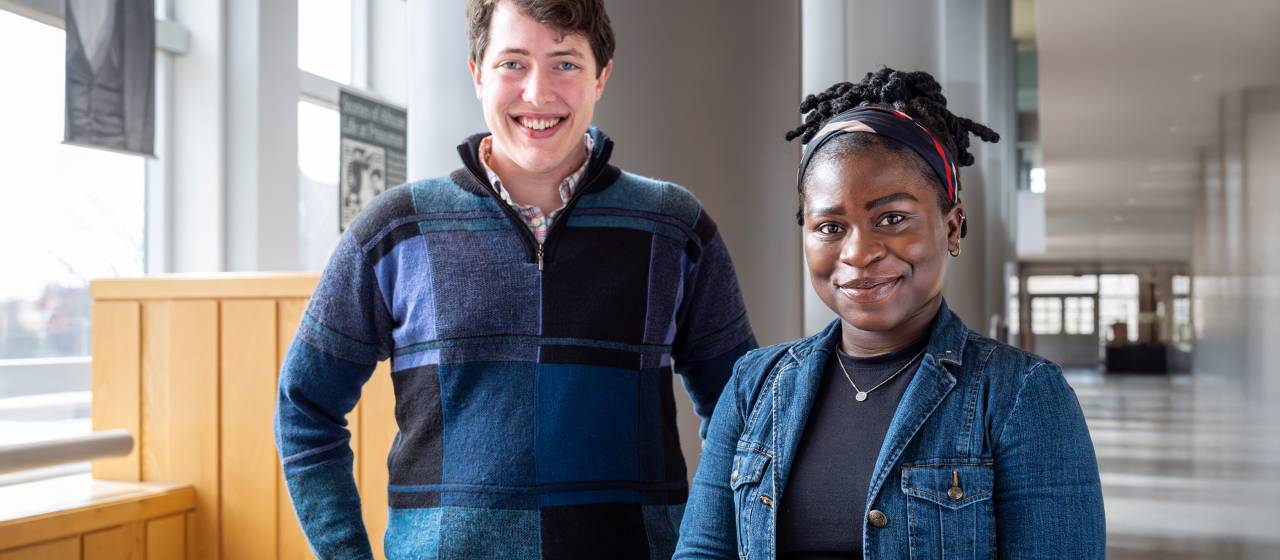
Nobel laureate David MacMillan joins Princeton’s fight against cancer
In a development that signals a bold new chapter in cancer research for his research team, David MacMillan has been named a Distinguished Scholar in the Princeton Branch of the Ludwig Institute for Cancer Research, one of only three such appointments in the worldwide network of Ludwig Cancer Research.

The new alliance will draw some of the lab’s marquee technologies into the fight against cancer. Chief among them is µMap, or Micromap, a light-based labeling technique developed by MacMillan six years ago that enables scientists to peer deeply into a cell’s microenvironment and tease out the molecular interactions inside it.
The Ludwig Princeton Branch, established at Princeton University in 2021 under Professor of Chemistry and Integrative Genomics Joshua Rabinowitz, aims to advance the science of cancer and metabolism. Micromap will supercharge that research by going after specific questions that address the relationships between diet, metabolism and cancer.
“I’m thrilled. Ludwig is brilliant at assembling these teams all over the world, equal partners in the fight against cancer who all bring something different to the table,” said MacMillan, the James S. McDonnell Distinguished University Professor of Chemistry and a winner of the 2021 Nobel Prize in Chemistry. “We’re going to use Micromap to shine a light on the biology of certain types of cancers in ways that people have not been able to do before.
“If you think of cancer as a machine, it’s got all these moving parts that enable it to do what it does. When you really understand a machine, you can also understand which part is the weakest link so you can stick a wrench in the gears at that point and shut the whole thing down,” he said. “That’s what we’re doing with Micromap at the Ludwig Branch. That’s the goal.”
Micromap enables researchers to identify which molecules are to be found alongside each other inside the human cell. A catalyst — in this case, an organic metal compound — is selectively attached to any one of some 40,000 proteins on a cell’s surface, where it acts as a kind of antenna. Blue light serves as the trigger. When shined on the cell, this blue light is picked up by the antenna, generating a fluorescent marker. That marker lets scientists identify proteins and their molecular neighbors down to within 1 to 10 nanometers, or the 10 to 15 closest molecules. This is important because proximity reveals insights about molecular behavior and how changes in that behavior can lead to disease.

The MacMillan Group’s µMap (Micromap) technology in action: the µMap catalyst paints nearby cells fluorescent green.
Ludwig supercharges its branches
Ludwig has already named two distinguished scholars at international branches, including Peter Ratcliffe, who received the 2019 Nobel Prize in Physiology or Medicine for his seminal studies of cellular oxygen sensing and hypoxia, at the Institute’s Oxford Branch; and Ludwig Lausanne’s Distinguished Scholar Douglas Hanahan, who is renowned for his pioneering development of mouse models of cancer.
MacMillan is the first distinguished scholar in the United States.
“We are very excited to have a chemist of such caliber join the Princeton Branch, which is broadly exploring the interplay of metabolism and cancer biology,” said Ludwig Institute CEO and Scientific Director Chi Van Dang. “I expect Dave’s innovative photo-proximity labeling will be in high demand to deconstruct the complexity of the tumor metabolic microenvironment and everything from the microbiome, anti-tumor immune response to cancer metastasis — all of which are areas of intense study across Ludwig Princeton’s laboratories.”
Rabinowitz, founding director of the Princeton Branch, has worked recently with MacMillan and µMap on research focusing on HER2+ breast cancer resistivity. A paper on their findings is expected to be published in the near future.
“The Ludwig Princeton Branch aims to master metabolism — our body’s intrinsic small molecule chemistry — to prevent and fight cancer. Bringing David MacMillan, one of the world’s leading small molecule chemists, into the branch aligns perfectly with this objective,” said Rabinowitz.
“On top of their Nobel-winning work in hard-core organic chemistry, the MacMillan Group has recently pioneered a transformative technology for measuring interactions between biomolecules at atomic length scales,” he said. “The technology will be deployed by the branch to map molecular interactions involving metabolites, enzymes, immune signals and cancer drivers at unprecedented resolution, opening the door to new therapeutics.”
MacMillan said the relationship with Ludwig will have a sizable impact on his lab, which stepped into the subfield of chemical biology just six years ago, after focusing almost exclusively on catalysis for nearly two decades.
“We’ll be devoting a lot of time to thinking about questions and ideas for Ludwig Cancer and how the µMap platform can be used across the world of biology. We know what we bring to the table, but there are also all these tremendous experts in different areas of oncology around the world who will really expand our horizons enormously,” said MacMillan. “Together, collectively, this allows us to push the needle towards therapies and being able to think about how this can be beneficial for cancer patients worldwide.”
Ludwig Cancer Research is an international collaborative network of acclaimed scientists that has pioneered cancer research and landmark discovery for more than 50 years. Ludwig combines basic science with the translation and clinical evaluation of its discoveries to accelerate the development of new cancer diagnostics, therapies and prevention strategies.
Latest Princeton News
- Physicist Frank Calaprice, leading neutrino expert and ‘tremendous mentor,’ dies at 85
- The University community mourns the loss of undergraduate Kerry Grundlingh
- NASA at Princeton: Hands-on lab trains students in teamwork, building space equipment
- Civil and respectful dialogue on difficult topics: A bedrock Princeton commitment
- Two seniors receive Dale Fellowships to pursue original projects after graduation
- State AI leaders gather at Princeton to consider how the technology can improve public services













